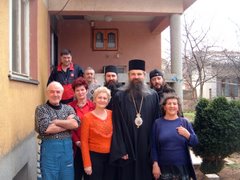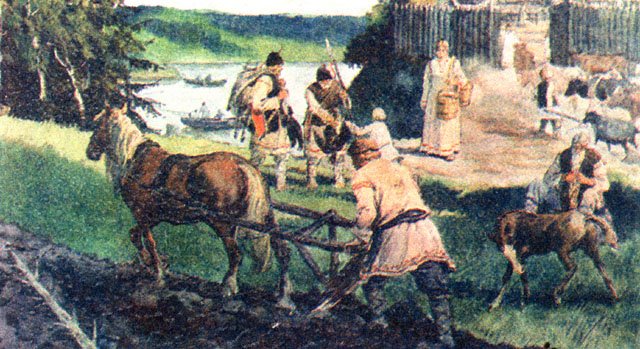Profile Vojislav Kostunica
Thursday, 5 October, 2000, 22:52 GMT 23:52 UK
Kostunica: Man of Conviction
Vojislav Kostunica has never been a top-level politician
By south-east Europe analyst, Gabriel Partos
The man who has rallied Serbia's people and its disparate opposition forces against Yugoslav President Slobodan Milosevic is Vojislav Kostunica, a 56-year-old law professor.
Kostunica's popularity has grownThe popular professor is the only prominent opposition leader - apart from the younger generation - who never joined the ruling party during the communist era.
He has also been the most consistent Serb nationalist on the political stage, except for the ultra-rightist Vojislav Seselj.
These qualities of consistency and standing by his principles over the years explain, at least in part, why so many Serbs were prepared to support him in his bid oust Mr Milosevic. And they did so in spite of the fact that Mr Kostunica, a political loner, lacks the charisma or popular appeal of other opposition leaders.
Personal convictions
Born in Belgrade in 1944 as the son of an officer in the pre-war Yugoslav army, Mr Kostunica studied law at Belgrade University in the late 1960s and early 1970s.
He has not tried to do deals with President Milosevic and has not attempted to enrich himself Anti-communism and nationalism were combined in Mr Kostunica's thinking as far back as 1974 when, as a young academic, he criticised Tito's reshaping of the Yugoslav constitution along the lines of a loose-knit federation.
He believed the federation undermined the position of Serbs who lived outside Serbia, or in Serbia's then newly-autonomous provinces, Kosovo and Vojvodina. He was punished for his criticism by being dismissed from Belgrade University's law faculty.
By the mid-1980s it had become fashionable in Serbian intellectual circles to espouse the Serbian nationalist cause. During the late 1980s and early 1990s, Mr Milosevic responded to the rise of nationalism by abolishing, in practical terms, Kosovo's autonomy and encouraging Serbs to rebel against the authorities in Croatia and Bosnia-Hercegovina.
Mr Kostunica is not connected with President MilosevicIn the meantime, multi-party politics had returned to Serbia. Mr Kostunica was among the founding members of the Democratic Party but he left in 1992 because he considered it was not sufficiently nationalist. His newly-established Democratic Party of Serbia formed an alliance with the charismatic Vuk Draskovic's conservative Serbian Renewal Movement (SPO).
The revival of Serb nationalism with the escalation of the Kosovo conflict gave Mr Kostunica another chance But just a year later, personal rivalry prompted Mr Kostunica to break with Mr Draskovic. Thereafter, his party remained on the margins of Serbian politics, and Mr Kostunica distinguished himself primarily by his repeated attacks on the various peace plans, including the Dayton accords, put forward for Bosnia. His opponents in Mr Milosevic's administration described Mr Kostunica at the time as forming a "war party", along with Mr Seselj.
When most of Serbia's opposition parties came together to form the "Zajedno" alliance in 1996, Mr Kostunica never became more than a semi-detached member of the coalition. He stayed away from the mass public protests in late 1996 and early 1997 which helped to force President Milosevic to concede the opposition's unprecedented election victories in Serbia's major towns.
Public image
His failure to line up behind the "Zajedno" coalition appeared to cost Mr Kostunica considerable political support. His group was dubbed the "van party" - on the grounds that all its supporters could fit into one vehicle.
President Slobodan Milosevic still has strong supportBut the revival of Serb nationalism with the escalation of the Kosovo conflict gave Mr Kostunica another chance - particularly because other better-known opposition leaders had lost public backing through their public disputes.
Mr Kostunica is also respected because he has not tried to do deals with President Milosevic and has not attempted to enrich himself. Married with no children, he still drives a battered Yugo car and spends his holidays in a quiet mountain village.
Mr Kostunica might still have remained in comparative obscurity - at least in terms of international attention - had not President Milosevic decided in July to combine constitutional amendments to allow him a second term, with changing the method of election from a vote in parliament to a nationwide ballot.
At that time it seemed that the much-divided opposition would not be able to mount an effective challenge.
Broad support
But much of the opposition - with the exception of Mr Draskovic's SPO - forged an alliance to nominate Mr Kostunica. This was in the expectation that Mr Kostunica, as a firm nationalist, would stand the best chance of beating President Milosevic following his defeat in Kosovo.
Mr Kostunica also enjoyed the advantage of never having been close to power at the national or local level; and, as such, he neither negotiated with Mr Milosevic nor has he been tainted by corruption.
He combines the rhetoric of advocating that Serbia join Europe and European institutions with strong anti-Nato criticism.
This is despite the fact that the vast majority of K-For peacekeepers in Kosovo are from Nato's European members. He has also embarrassed the United States by denouncing Washington's establishment of an office in Budapest to assist the Serb opposition. He called it interference in Serbia's affairs.
Mr Kostunica's policies and pronouncements may not be to the West's liking. But he is considered a democrat, unlike Mr Milosevic

















